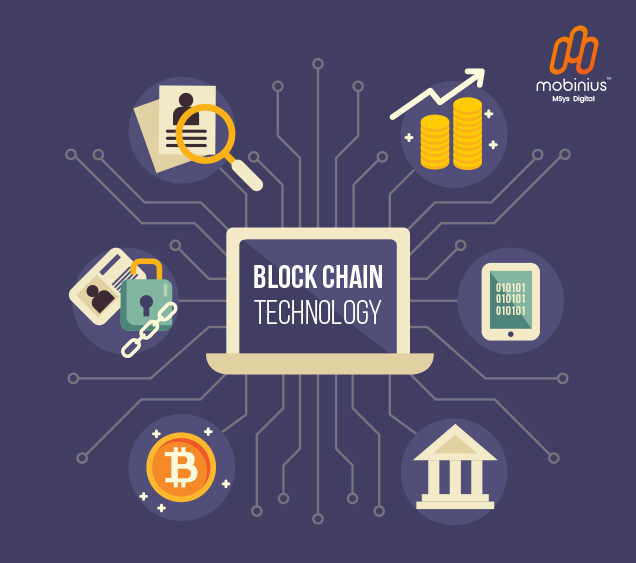Blockchain in supply chain management
Audio : Listen to This Blog.
Blockchain as a technology powers the efficiency of the crypto currency system. Ironically the application of this technology grew to be more popular than the technology itself. But it was not long before blockchain made heads turn. People have been confused about the whole concept of increasing security but actually handing over access to multiple nodes. The reality is that, with blockchain, the dependency on a single database, a server is split up and the control is distributed over the nodes in the network. Blocks can be added but to access the other blocks or to tap into the system hackers would have a really hard time. This secure system to store and manage data and to take care of the contract management could be a remarkable addition to any industry. When there is data and when there is the need for security there is the need for blockchain. It means that pretty much every business big and small could benefit from this technology. But how it is used and where it is used would cause the real difference.
The shipping industry has taken a new turn ever since one of the biggest names in shipping, Maersk introduced the trend of using blockchain in electronic shipping platforms. In collaboration with IBM, this shipping company has created a new path and businesses around the world are now joining the league. This is a precursor to what lies ahead for those businesses that use blockchain for supply chain management.
When it comes to supply chain transparency is pretty crucial
There are so many tiny steps that together constitute the success of a supply chain. Traceability can be inculcated with the introduction of blockchain. When something goes wrong, when a shipment is delayed or if there is any other fault in the system tracking the entire process would help identify the real cause of failure. Identify the root cause is essential here in order to prevent recurrence of the failure instead of simply taking countermeasures for the current situation. The information gathered in the blockchain would also make documentation processes simpler. When the traceability is good identification of the issues can happen faster and with better precision. There would be information about every single transaction that happens.

Take for example the case of a restaurant chain or a retail store- the products are sold by the business directly to the consumers. But the sources of each of the products might be different. The restaurant might obtain its ingredients from various farms and supermarkets. The supermarkets in turn might obtain their products from various suppliers or in some cases, straight from the manufacturers. If there is an issue with the freshness of the product the problem can be identified by tracing back to where the product actually came from. Here the ideal case scenario of farm to home delivery doesn’t happen. The products pass through various nodes and having blockchain would help record the details of every single deal that takes place. When the business knows this information it would be able to quickly take decisions so that the business isn’t affected.
Smart contracts mean automation of the purchases
Creation of purchase orders to the placement of the order can all be automated with the help of smart contract management solutions. Smart contract management is where a preset rule is fed into the system. When a particular criterion is met a corresponding action would be taken. The transactions initiated here would abide by the terms and conditions of the contract framed by both the parties. Checking the conditions of the contract as well as taking decisions based on this would be handled by the blockchain. So a smart contract system would be free from the risks of contract violations that happen by mistake. Timely renewal of the contracts as well as subsequent steps to be taken would be handled by the blockchain.
Smoother relationships and reduced costs
One main thing that a blockchain system does is to remove the middlemen in transactions. The suppliers and the businesses would interact directly. This would reduce the weak links in the transactions where data breaches are prone to occur. Manual processes tend to be tedious when it comes to logistics. When the many logistics and shipment companies function as separate entities there is a lot of friction that exists. Blockchain would identify and bring together such firms and establish a decentralised system breaking free of the traditional standards. Global trading scenario would also get better when this happens. The smart contract management capabilities are handy especially while handling international trade transactions. Permits, licenses, payment of custom duties, and taking charge of clearances can easily be automated when blockchain is in place. Shipments can all be handled under one roof. Tracking these shipments can also be done in moments. The number of interactions that generally happen in the course of an international shipment comes down. The entire troop including collaborations with the customs, procurement, and shipment can all be brought close and the gaps can all be filled in these areas. This way the number of steps involved comes down and this brings down the risks of accidental regulation breaches. The increased collaboration created by blockchain is what helps it achieve a simplicity in the whole process.
Listening to the woes of the businesses there have been several supply chain startups that have cropped up in the recent times. By imparting the benefits of blockchain to supply chain management the efficiency of the system is multiplied and thus there are better returns expected on the investment made.
Small or big – every supply chain needs blockchain
Documentation is an important part of supply chain and this is done better with blockchain, We could keep giving such compelling reasons to reiterate the need for blockchain in supply chain management. Decentralised ledgers are the future. These are the ones that are also known to offer better security which is also another necessity for the supply chain industry. Internal audits can all be automated. Global trade is definitely more complicated in nature than local trades. But that should not stop a small business from exploring the advantages of blockchain in its supply chain. Transparency would not just collect details about the transactions and present it to the stakeholders but also help understand the real value of the product or service being spoken about. Digital decentralised ledgers would also remove the possible space for frauds or biased decisions. Blockchain would thus help add a trust in the supply chain domain with its transparency and superior security measures.



